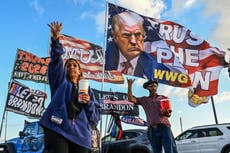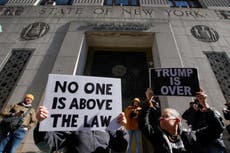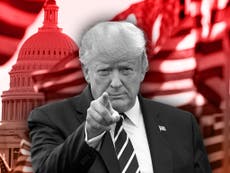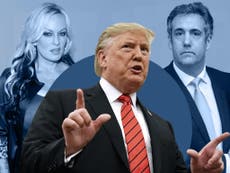Far-right support for Trump protests looks disorganised on social media. Others think it’s a trap
Donald Trump’s prediction of his own arrest is evidence to far-right supporters and conspiracy theorists of the plot against him, but online efforts to defend him appear uninterested or unfocused, Alex Woodward reports

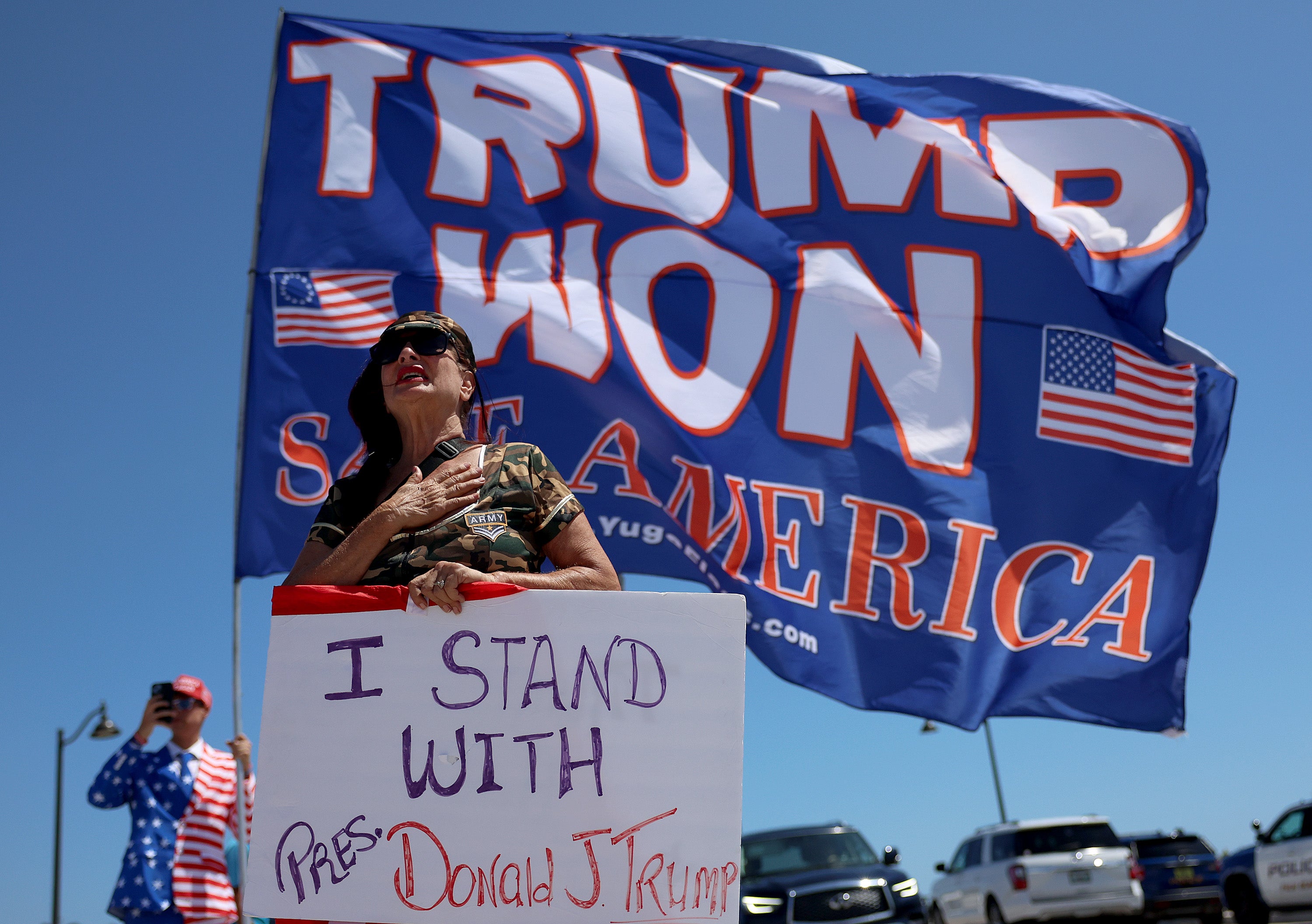
Your support helps us to tell the story
From reproductive rights to climate change to Big Tech, The Independent is on the ground when the story is developing. Whether it's investigating the financials of Elon Musk's pro-Trump PAC or producing our latest documentary, 'The A Word', which shines a light on the American women fighting for reproductive rights, we know how important it is to parse out the facts from the messaging.
At such a critical moment in US history, we need reporters on the ground. Your donation allows us to keep sending journalists to speak to both sides of the story.
The Independent is trusted by Americans across the entire political spectrum. And unlike many other quality news outlets, we choose not to lock Americans out of our reporting and analysis with paywalls. We believe quality journalism should be available to everyone, paid for by those who can afford it.
Your support makes all the difference.Former president Donald Trump’s demands that his supporters “protest, protest, protest” his potentially imminent indictment have prompted law enforcement officials to tighten security measures around New York City while monitoring potential threats.
Across far-right social media accounts and message boards reviewed by The Independent, the former president’s prediction of his own arrest was the evidence they needed to support long-running conspiracy theories that Democratic officials and President Joe Biden’s administration have weaponised the federal government against him.
But unlike the January 6 attack on the US Capitol, which was organised openly across social media platforms, discussion of protesting Mr Trump’s potential arrest has largely revolved around denouncing the Manhattan district attorney’s investigation and echoing the former president’s incendiary and dramatic rhetoric about the state of the US.
Prominent QAnon influencers, Trump loyalists, Christian nationalists and civil war accelerationists – including figures who were once central to the “Stop the Steal” effort that fuelled the crowds before the riot in the halls of Congress two years ago – have expressed some sceptism over the former president’s latest demands, or have refused to participate in his defence at all.
Still, the criminal prosecution of the former president remains a “line in the sand” for right-wing extremists, and “thus have the potential to manifest in violence toward government targets or political officials,” according to a coalition of federal law enforcement agencies monitoring such threats.
Mr Trump’s announcement on 18 March “was met with an immediate increase in violent online rhetoric and expressed threats toward government and law enforcement targets perceived as participating in a political persecution of the former president,” as well as more general calls for civil war, according to the report.
Demonstrations near his Mar-a-Lago residence in Florida have drawn only handfuls of supporters. A small group of people waved Trump flags at passing cars in The Villages retirement community on 21 March.
A demonstration outside the New York County District Attorney’s office on 20 March organised by the New York Young Republican Club was largely outnumbered by members of the press. Mr Trump later shared a video from the group at the rally to his Truth Social account, and the organisers said the small crowd size was intentional.
A non-credible bomb threat was made to a nearby courthouse the following day. The New York City Police Department said the threats were deemed “illegitimate” and stated that the “there are currently no credible threats” to the city. Neither a small demonstration outside Trump Tower in midtown Manhattan nor a caravan of Trump supporters from Long Island raised any security concerns, police said.
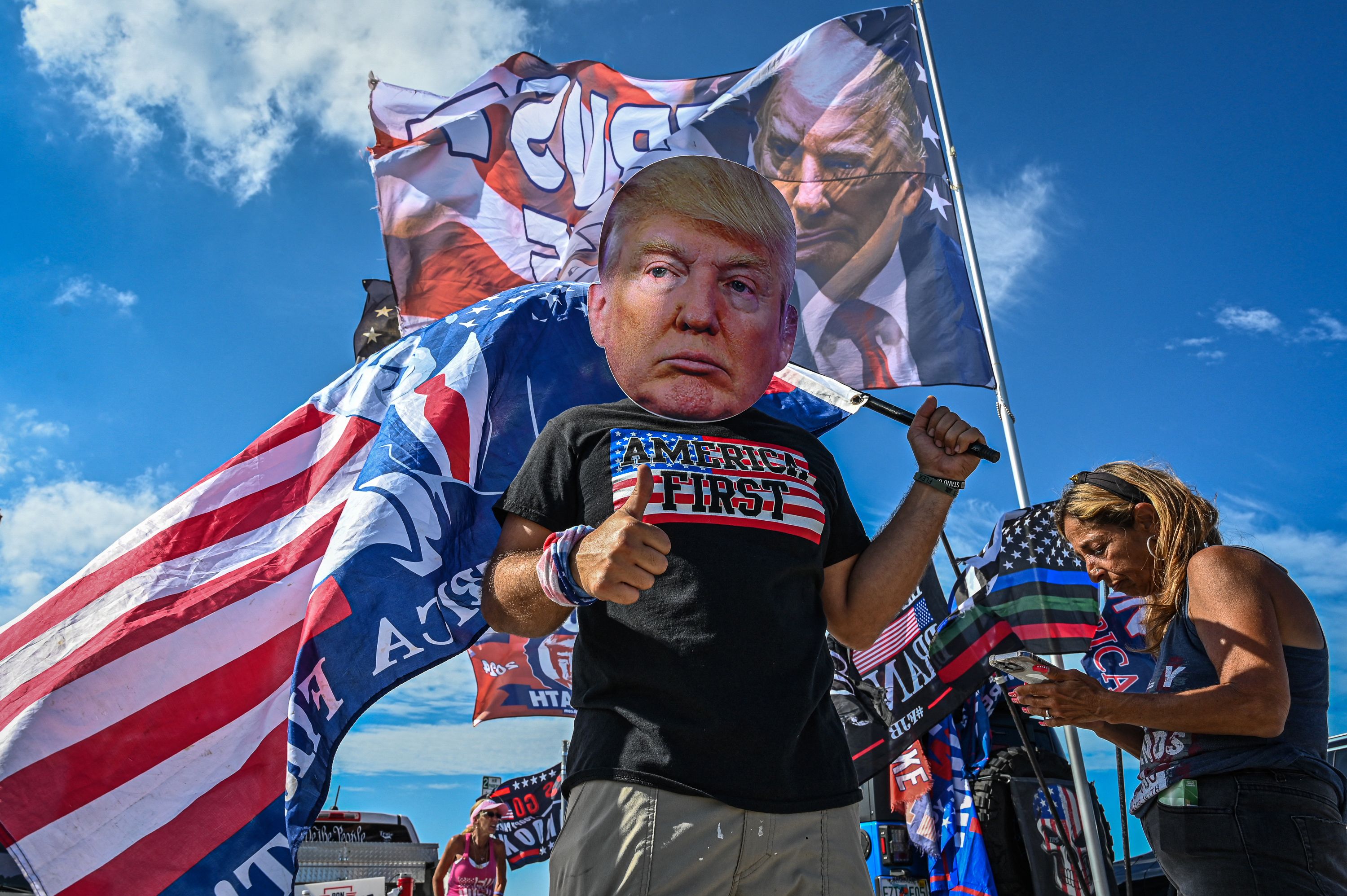
QAnon-amplifying accounts with large followings on Truth Social have echoed their “trust the plan” slogan believing that Mr Trump’s potential arrest would trigger a national downfall, making him a martyr that his supporters would rally around.
QAnon influencer The Patriot Voice said the most effective protest would be wearing red “MAGA” hats. Far-right activist and failed congressional candidate Laura Loomer told supporters not to show up outside Mar-a-Lago because streets will likely be shut down; she instead told people to show up at his first 2024 campaign rally in Waco, Texas on 25 March. She joined protesters at The Villages on Tuesday.
Ali Alexander, one of the organizers of the “Stop the Steal” rallies who is now campaigning alongside white supremacist Nick Fuentes for Kanye West, suggested to his followers that protesting in New York City “in the single most hostile jurisdiction” will lead to jailtime “or worse”.
“Previously, I had said if Trump was arrested or under the threat of a perp walk, 100,000 patriots should shut down all routes to Mar-a-Lago. Now, I’m retired,” he wrote on his Telegram channel. “I’ll pray for him though!”
He also said he spoke to InfoWars host and conspiracy theorist Alex Jones, and “he’s not protesting either.”
“We’ve both got enough going on fighting the government,” he added. “No billionaire is covering our bills.”
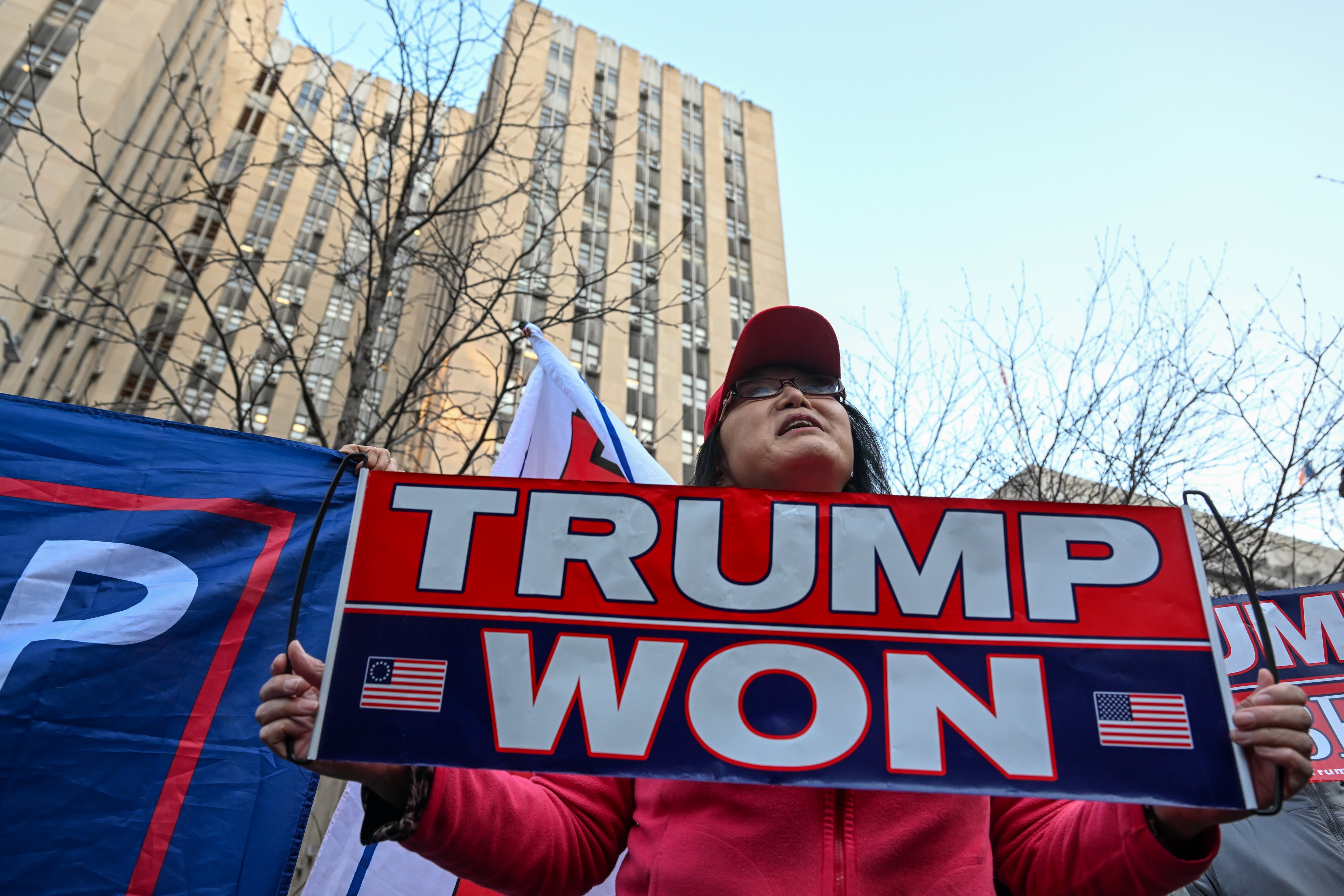
Others, including far-right US Rep Marjorie Taylor Greene, have suggested that federal agents or “fed assets” could intentionally turn protests violent. Far-right influencer Paul Joseph Watson asked his Twitter followers whether they believe protests are a “J6-style trap,” referring to a conspiracy theory that federal agents entrapped rioters to participate in the Capitol attack.
A crowd gathered at Trump Tower to support the former president were also accused of being “feds”.
“QAnon-related folks and some MAGA adherents are talking about how this is one big trap in some cases, that this is an operation intended to get (Trump’s) supporters in trouble,” according to Oren Segal, vice president of the Center on Extremism at the Anti-Defamation League, speaking to Reuters.
He told USA Today that there is “not any cohesive movement in terms of where these protests should happen.”
The Institute for Research and Education on Human Rights has reviewed three distinct “waves” of online far-right activity in the wake of Mr Trump’s call for protests, starting with the amplification of his demands, followed by claims that they are a “trap” set by law enforcement, according to the institute’s executive director Devin Burghart.
A third wave “compromise” is underway, with attention focused on Mr Trump’s rally in Texas on 25 March.
But for others across far-right social media spaces, the former president’s supporters have felt a sense of betrayal in the aftermath of the Capitol attack, fuelled by his baseless narrative that the election was stolen from him, while hundreds of his supporters face charges connected with storming the Capitol.
“Has he called for protests about these poor guys? No. But he’s calling for us to protest about his arrest,” one user wrote in a pro-Trump Telegram channel. “It doesn’t sit right with me.”
